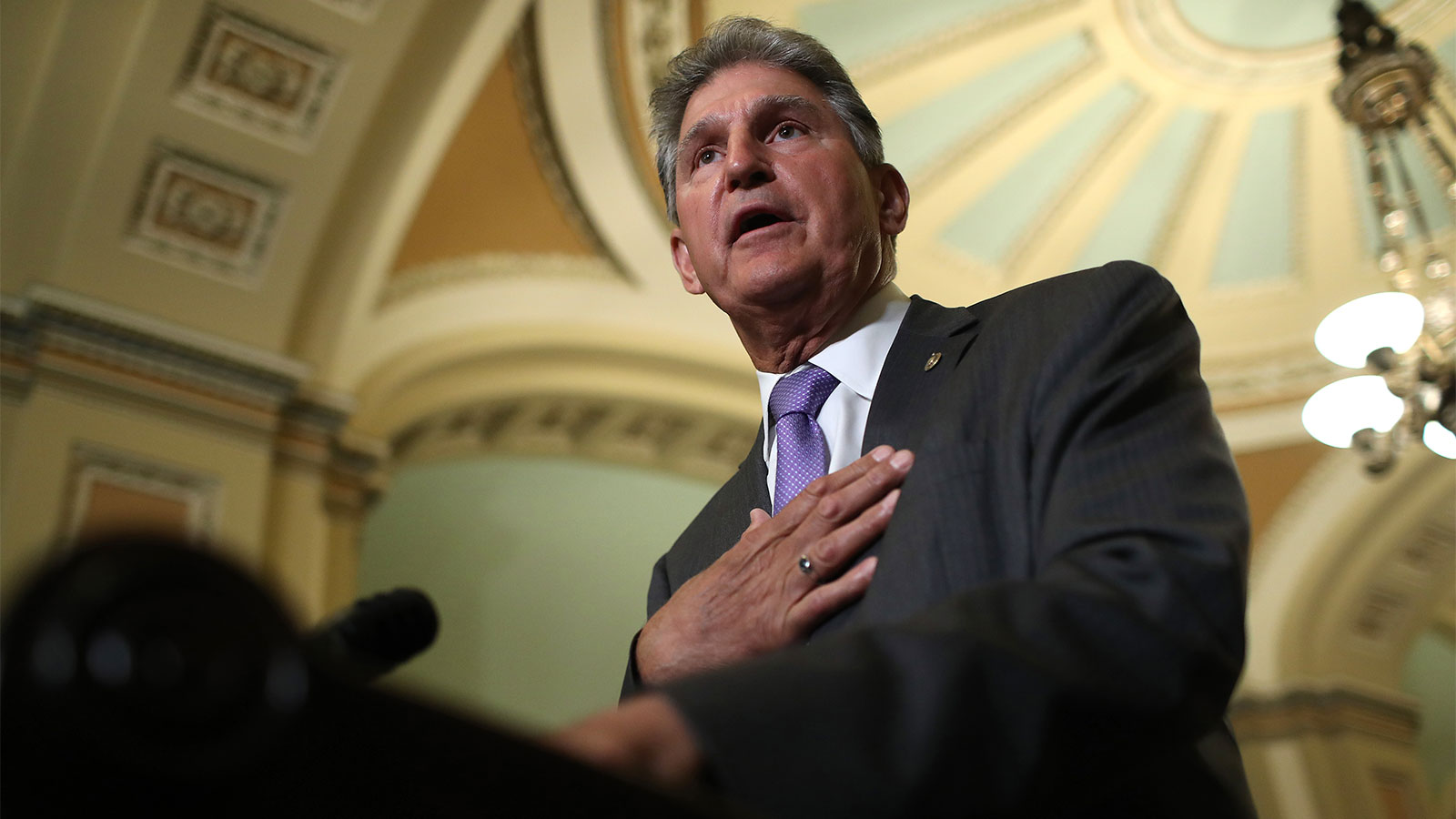The new Senate Committee on Energy and Natural Resources met Wednesday for its first hearing with Democratic Senator Joe Manchin of West Virginia at the helm. The stated purpose of the hearing, as described by Manchin in his opening remarks, was to establish a “baseline of global climate facts” for the committee to build on to advance climate solutions.
“As we look for ways to heal the division in our own country,” Manchin said, “I believe that one way for us to overcome our differences of opinion is by first grounding ourselves in the facts.”
But by the end of the more than two-hour hearing, the only facts the assembled senators appeared to agree on were that climate change is real and “largely” caused by humans. The discussion came nowhere close to touching on a clean energy standard, one of the key climate policies President Biden campaigned on. Instead, the benefits of renewable energy were up for debate.
Much of the hearing was taken up by Republican-led discussions that cast doubt on the fact that replacing fossil fuels with renewable energy reduces emissions. For example, Mark Mills, a senior fellow at the Manhattan Institute, a conservative think tank, testified that cutting down on fossil fuel production in the U.S. wouldn’t make much of a difference in global greenhouse gas emissions, since there will still be demand for oil and other countries will step in to fill in the gap.
However, Arvind Ravikumar, an assistant professor of energy engineering at the Harrisburg University of Science and Technology, told Grist that it really depends on where that new oil comes from. The U.S. oil industry, particularly in the Permian Basin in Texas, has some of the highest methane emissions in the world, so if production shifted to somewhere with better regulations and cleaner extraction that could, in fact, reduce emissions.
But that’s almost beside the point — Ravikumar said Mills’ argument ignores the broader context. We can’t necessarily assume that U.S. production will be replaced elsewhere. With major automakers like GM vowing to switch to all-electric vehicles, President Biden’s focus on electric vehicles, and the proliferation of green post-pandemic recovery plans abroad, oil demand may be on the decline.
Mills also argued that replacing fossil fuels with renewable energy and electric vehicles would simply export our greenhouse gases to the countries that produce the materials for those technologies. While mining materials does involve some emissions, Ravikumar said, it’s “nowhere close to the emissions associated with the extraction and use of fossil fuels.”
The hearing confirmed at least one widely expected baseline of action that both Republican and Democratic senators are likely to get behind: investing in American innovation, primarily for carbon capture and storage technologies. Fatih Birol, the executive director for the International Energy Agency, pushed for this in his testimony. While the U.S. needs to make the most of market-ready solutions like wind, solar, hydropower, geothermal, and nuclear, he said, these alone are not enough. Birol called for the U.S. to lead on innovation in carbon capture and storage, as well as hydrogen, batteries, and advanced nuclear reactors.
“If the U.S. does not act on the clean energy transition, U.S. industry and U.S technology may be well behind the curve. Others are moving,” said Birol.
Senators from both sides of the aisle asked Birol for advice on what policies the U.S. could adopt to be a leader in these technologies. Republian Senators John Barrasso of Wyoming and Steve Daines of Montana spoke of the promise of carbon capture to clean up their states’ coal-fired power plants. Birol, however, pushed the committee to direct its attention to industrial emissions and suggested providing additional incentives for carbon capture in hard-to-decarbonize industries, such as cement making.
Meanwhile, Manchin, who holds a key vote over these decisions as the Senate’s most moderate Democrat, ignored the discussion over technologies altogether. He primarily fussed over the Paris Agreement, which the U.S. is rejoining, expressing frustration that its targets were not legally binding and anxiety over whether the U.S. could trust other countries’ commitments. He asked witnesses whether it was even possible for the U.S. or any other country to get to net-zero by 2050. Birol said he believed it was compulsory that we try.




